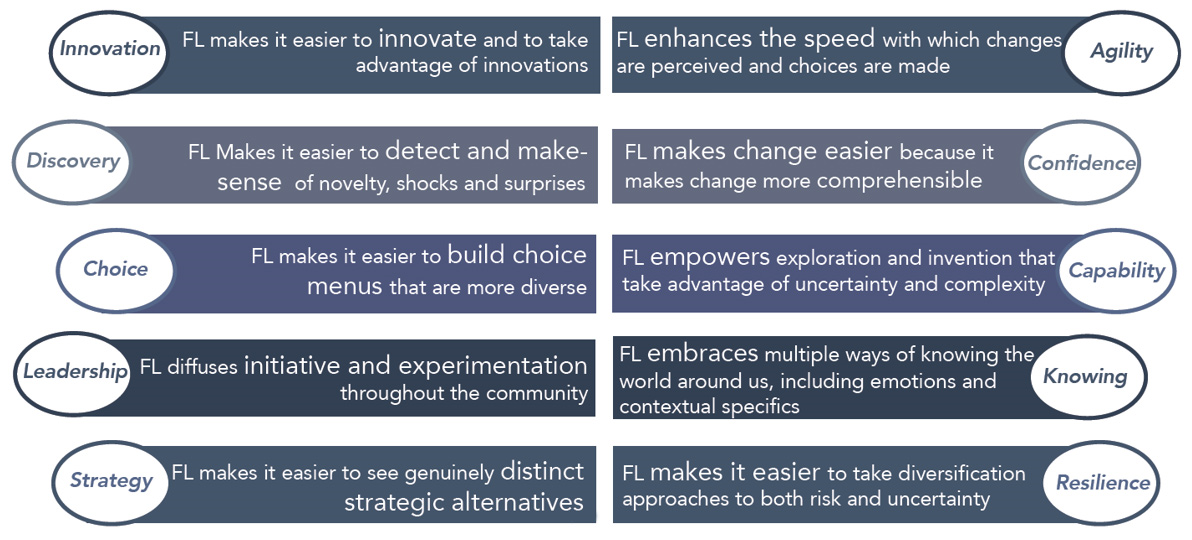Why develop your futures literacy?

Human beings spend 1 out of every 8 waking hours imagining the future. That time is typically spent predicting, dreaming or fearing what is to come. Becoming more futures literate means harnessing these involuntary thoughts in a way that is both useful and practical.
Futures literacy enables us to consciously use our imaginations for all kinds of different reasons, ranging from personal to organisational and societal. It also makes us more adaptable, and able to recognise the limitations that come with the illusion of certainty. There is no single methodology or tool that will create such a skill, but it does require drawing on the wide range of futures methods that are available.
The good and the bad thing about the future is that it is unknowable. Why then would we spend time thinking about it? For some it is out of academic curiosity, but for most people the reason is practical.
One of the best known examples of using the future is the story of the Mont Fleur scenarios and the role they played in a peaceful transition from apartheid in South Africa. At the time the country was caught in a vicious cycle of conflict, political unrest and economic decline. The very act of imagining multiple four distinct futures—Ostrich (non-representative government); Lame Duck (incapacitated government); Icarus (macro-economic populism) and Flight of the Flamingoes (inclusive democracy and growth) enabled the different interest groups to reconcile their differences. The scenarios asked three questions: Is a settlement negotiated? If not, it is the Ostrich. Is the transition rapid and decisive? If not, the Lame Duck emerges. Are the policies of the new government sustainable? If not, its Icarus. If yes, South Africa will find itself on the flight path of the flamingo. By asking these questions, the consensus became to create a shared future.
As Mont Fleur illustrated, thinking about the future enables us to anticipate what it might hold and explore multiple possibilities of what might happen. Equipped with this increased understanding of the extent of change, we are able to explore possibilities, test our plans, identify our assumptions about the future and hopefully, use these insights to make better decisions.
Futures literacy is about thinking the unthinkable. Not only does it change the way we look at the world, but it also changes how we see and understand it. Forewarned is forearmed.
If you’d like to learn more about how to develop your futures literacy, join us this Thursday 18th March for our FREE Community Call on Become More Futures Literate. All you need to do is sign up to our Community Newsletter below and you’ll receive your link on the day. Of course you can unsubscribe at any time.
